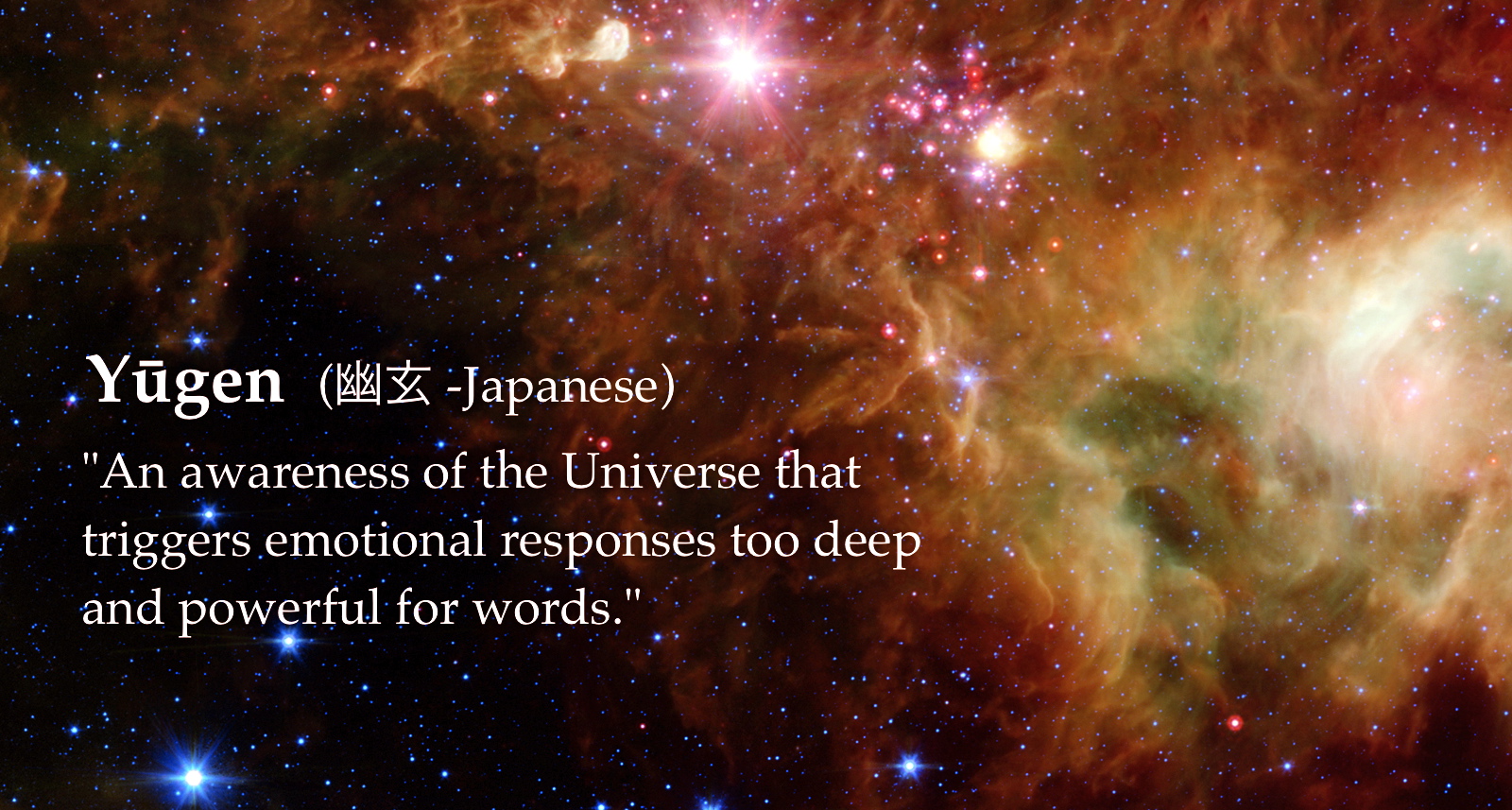 There are two particular concepts from Japan that
encapsulate the Japanese way of life, Zen teachings and the elemental forces
that can be found in universal connection. These concepts are very beautiful,
and in a very succinct manner, and without being too verbose or wordy cut right
to the core and explain simply and easily the purpose of life. These two words,
which both convey entire concepts are Yugen and Ikigai. If you know anything of
Zen Buddhism, you will perhaps know the concept of Yugen. Zen Buddhism lies at
the heart of Japanese culture, and has its roots in the awakening of Siddhartha
Gautama, also known as The Buddha, 2500 years ago. In essence, Zen Buddhism is
a method of self-discovery which is found through meditation, as well as the
experience of presence that is found by living in the present moment. Japanese
ideals are heavily influenced by Zen Buddhism where all things are considered
to be either evolving or dissolving into nothingness- although this nothingness
is not an empty space, but a space of potentiality. Through this process of
self-discovery through the practices of meditation and experiential living we
also realise that we are most alive and connected with the elements around us.
Hence Yugen. Yugen is an awareness of the Universe that triggers an emotional
response which is too deep and powerful for words. It is an innate connection
with the universe and all within it, a knowing that we are a part in the inter-connectedness
of all things and an active part of the Universal Consciousness. Yugen applies
to our experience in this world and in this lifetime, and this implies that we
are aware of our spiritual connection to all things.
There are two particular concepts from Japan that
encapsulate the Japanese way of life, Zen teachings and the elemental forces
that can be found in universal connection. These concepts are very beautiful,
and in a very succinct manner, and without being too verbose or wordy cut right
to the core and explain simply and easily the purpose of life. These two words,
which both convey entire concepts are Yugen and Ikigai. If you know anything of
Zen Buddhism, you will perhaps know the concept of Yugen. Zen Buddhism lies at
the heart of Japanese culture, and has its roots in the awakening of Siddhartha
Gautama, also known as The Buddha, 2500 years ago. In essence, Zen Buddhism is
a method of self-discovery which is found through meditation, as well as the
experience of presence that is found by living in the present moment. Japanese
ideals are heavily influenced by Zen Buddhism where all things are considered
to be either evolving or dissolving into nothingness- although this nothingness
is not an empty space, but a space of potentiality. Through this process of
self-discovery through the practices of meditation and experiential living we
also realise that we are most alive and connected with the elements around us.
Hence Yugen. Yugen is an awareness of the Universe that triggers an emotional
response which is too deep and powerful for words. It is an innate connection
with the universe and all within it, a knowing that we are a part in the inter-connectedness
of all things and an active part of the Universal Consciousness. Yugen applies
to our experience in this world and in this lifetime, and this implies that we
are aware of our spiritual connection to all things.
So, both of these concepts give us the ability to connect to
the universe in a very deep, natural and organic way, which can make us become
more motivated and proactive in our day-to-day life. The process of understanding
these concepts and bringing them into our life can allow us to understand our
place in this world on a microcosmic level and our place in the universe on a
macrocosmic level.
Happy searching everyone!
Ben :-)
References
http://www.ushistory.org/civ/10c.asp
https://creativesystemsthinking.wordpress.com/2014/12/13/yugen-%E5%B9%BD%E7%8E%84-deep-awareness-of-the-universe/
http://upliftconnect.com/ikigai-finding-your-reason-for-being/
References
http://www.ushistory.org/civ/10c.asp
https://creativesystemsthinking.wordpress.com/2014/12/13/yugen-%E5%B9%BD%E7%8E%84-deep-awareness-of-the-universe/
http://upliftconnect.com/ikigai-finding-your-reason-for-being/
No comments:
Post a Comment